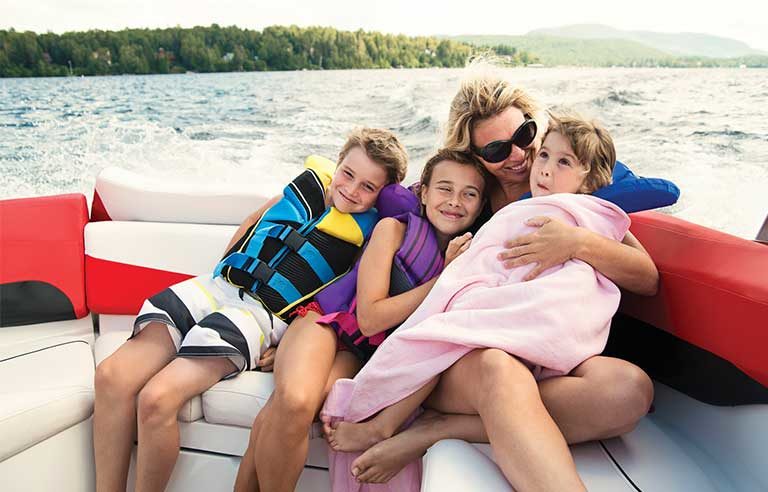Introduction
Boating offers a unique opportunity for families to bond and explore the beauty of waterways. However, it’s crucial to remember that water activities come with inherent risks. By taking proactive measures and adhering to safety protocols, you can create a secure environment for your family to enjoy boating adventures.
Prioritize Safety Education
Before embarking on any boating trip, ensure that all family members have a solid understanding of boating safety. Attend safety courses, read boating guides, and familiarize yourselves with navigational rules and emergency procedures. Education is the first step toward ensuring a safe experience on the water.
1. Wear Life Jackets at All Times
Life jackets are your most critical safety accessory on a boat. Make sure that each family member wears a properly fitting life jacket at all times while on the water. This includes children and adults alike. In emergencies, life jackets can be the difference between safety and disaster.
2. Practice Safe Speeds
Maintaining safe speeds is essential for preventing accidents and collisions. Follow posted speed limits and adapt your speed to the conditions of the water. Slow down when navigating through crowded areas, approaching docks, or in low visibility situations. Being aware of your speed can help you react promptly to any unexpected situations.
3. Regularly Maintain Your Boat
A well-maintained boat is a safe boat. Regularly inspect your vessel for any signs of wear and tear. Ensure that all mechanical components, such as the engine and navigation lights, are in proper working condition. Regular maintenance reduces the risk of breakdowns and malfunctions while on the water.
4. Be Weather-Wise
Check weather forecasts before heading out on the water. Sudden changes in weather conditions can pose serious dangers, especially for small boats. If storms are forecasted, it’s best to reschedule your boating trip. Being weather-wise helps you avoid potentially hazardous situations.
5. Assign a Designated Watcher
Assigning a designated watcher is particularly important when children are onboard. This responsible adult should keep a close eye on the kids at all times, ensuring that they remain within safe areas of the boat and follow safety rules. The designated watcher can also keep track of any potential hazards in the water.
6. Follow Navigation Rules
Just like roads have traffic rules, waterways have navigation rules that must be followed. Familiarize yourself with these rules to prevent collisions and maintain a smooth flow of boat traffic. Keep a proper lookout, follow the right-of-way guidelines, and use navigational aids to navigate safely.
7. Carry Essential Safety Equipment
Equip your boat with essential safety gear that can prove invaluable in emergencies. This includes items like:
- Fire Extinguisher: In case of fire emergencies onboard.
- Flares: Visual distress signals to attract attention.
- First Aid Kit: To provide immediate medical assistance in case of injuries.
- Emergency Communication Device: A VHF radio or a reliable cellphone for calling for help.
- Anchor and Line: To secure your boat if you encounter engine troubles.
Conclusion
Boating with your family can be an enriching and joyful experience, as long as you prioritize safety above all else. By educating yourselves about boating safety, wearing life jackets, practicing safe speeds, maintaining your boat, staying weather-aware, assigning a designated watcher, following navigation rules, and carrying essential safety equipment, you can create a safe and enjoyable boating environment for your loved ones. Remember that boating safety is a shared responsibility, and each family member plays a crucial role in ensuring a secure and pleasant journey on the water.
FAQs
- Are life jackets necessary for strong swimmers?
- Yes, even strong swimmers should wear life jackets while boating. Unexpected accidents or injuries can impair even the best swimmers’ abilities.
- Can I navigate at night without lights?
- No, navigating at night without proper lights is dangerous and against navigation rules. Always have working navigation lights when boating in low-light conditions.
- What should I do if I encounter bad weather while boating?
- If you encounter bad weather, seek shelter and return to shore if necessary. It’s best to avoid boating in inclement weather altogether.
- Do I need to take boating courses if I’m an experienced boater?
- Even experienced boaters can benefit from refresher courses. Courses often cover updated safety guidelines and regulations.
- Is it important to have a float plan?
- Yes, having a float plan is crucial. Inform someone on land about your boating plans, including your route, estimated return time, and emergency contacts. This information can be critical in case of an emergency.




